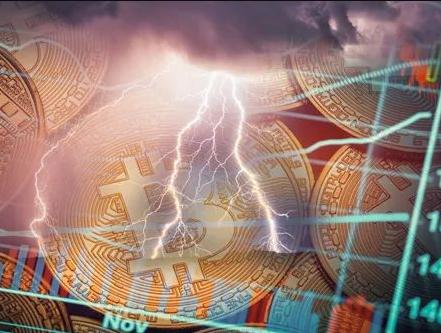The full text of the latest internal letter from FTX founder SBF to DCG founder Barry
One
Compiled by: Wu Says Blockchain
FTX Internal Letter
Hello everyone, I am deeply sorry for what has happened. I regret the experiences you all have gone through. I regret what has happened to the users. You gave everything for FTX, supporting the company and me. I never wanted this to happen, and I would give anything to go back and start over. You are my family, and I have lost you; our old house is an empty warehouse filled with monitors. When I turned around, there was no one left to talk to.
I have let all of you down, and when things exploded, I failed to communicate. Faced with pressure, leaks, and Binance's letter of intent, I froze and said nothing. In the chaos of the company's development, I forgot the most important thing. I care deeply about all of you; you are my family, and I am sorry. As CEO, I have the responsibility to ensure that FTX operates normally and well. I wish I had been more careful.
I want to provide a better description of what has happened, a description that I should have written earlier, the best I understand it. I will piece together what has happened recently and make an approximate estimate; I currently do not have complete access to data to get precise answers.
Regardless of liquidity, I have valued everything below at market value, and I believe the events that led to this month's collapse include:
- The market crash in the spring of this year caused collateral values to shrink by about 50%;
$60 billion in collateral, $2 billion in liabilities; turned into $30 billion in collateral, $2 billion in liabilities.
- A sudden depletion of credit across the industry;
$25 billion in collateral, $8 billion in liabilities.
- A centralized, highly correlated crash in November that caused collateral values to drop again by about 50% in a very short time, during which there was very little liquidity from market bidders;
$17 billion in collateral, $8 billion in liabilities.
- A bank run triggered by the same attack in November.
$9 billion in collateral.
- As we frantically integrated everything, we found that positions were larger than what the backend systems showed because old fiat deposits made before FTX had bank accounts were all deposited into Alameda accounts:
$9 billion in collateral, $8 billion in liabilities.
I never thought this would happen. I did not realize the full scale of the margin positions, nor did I understand how great the risks were from the highly correlated crash. Loans and secondary sales were typically used for reinvestment in the business, not for large personal consumption. I deeply regret my negligence. In hindsight, I wish we had done many things differently, such as:
Significantly increasing skepticism towards large margin positions.
Examining stress test scenarios involving bank-related correlated crashes and simultaneous runs.
Being more careful with fiat processes on FTX.
Continuously monitoring total deliverable assets, total customer positions, and other core risk indicators.
None of this changes the fact that this is terrible for you, and it is not your fault; I am truly sorry. I will do everything I can to compensate you and the customers, even if it costs me the rest of my life. But I worry that even then, I may not be able to.
I also want to thank those who have given me advice that I now believe is correct, who suggested directions for FTX after the collapse. Of course, you were right. I believe that a month ago, FTX was still a thriving, profitable, innovative company. This means that FTX still has value, and that value could have been used to help everyone become whole.
We are likely to raise a significant amount of funds; about 8 minutes after I signed the bankruptcy protection documents, there was a potential interest in billions of dollars. With these funds, along with the billions of dollars in collateral that the company still holds and the interest we receive from other parties, I believe we might have been able to return a significant amount of value to customers and save the business.
Of course, some changes must be made: there needs to be more transparency, more controls, including oversight of myself. But FTX is a very special thing, and you all helped make it happen. Everything that has happened is not your fault. We must make very difficult decisions quickly. I have been through this before, and I should know that when bad things happen to us, we all tend to make irrational decisions. Out of desperation, immense coordination pressure forced all financial exchanges (even solvent entities) to file for bankruptcy, disregarding claims from other jurisdictions.
I understand this pressure and empathize; many people have been pushed into challenging environments, which is often not their fault. I reluctantly succumbed to this pressure, even though I should have known better; I wish I had listened to those who saw and still see the value of this platform, which is also my belief in the past and present.
There may still be a chance to save the company. I believe there is genuine interest from new investors in the billions of dollars that could be used to compensate customers. But I cannot guarantee that anything will happen because it is not my choice. At the same time, I am pleased to see some positive actions being taken, such as the relaunch of LedgerX.
I am very grateful for everything you have done for FTX over the years, and I will never forget it.
Two
Compiled by: Wu Says Blockchain
DCG Internal Letter
Dear shareholders, there has been a lot of noise over the past week, and I want to communicate directly with you to clarify our position at DCG. Most people are aware of the situation with Genesis, but let’s review: Genesis Global Capital's lending business paused redemptions and new loan issuance last Wednesday (November 16) due to unprecedented withdrawal requests triggered by market turmoil. This is a liquidity and duration mismatch issue on Genesis's loan book.
Importantly, these issues do not affect Genesis's spot and derivatives trading or custody business, which will continue to operate as usual. The leadership and board of Genesis have decided to hire financial and legal advisors, and the company is exploring all possible options to address the collapse of FTX. In recent days, there have been rumors about inter-company loans between Genesis Global Capital and DCG. For those who are unaware, in the normal course of business, DCG borrows from Genesis Global Capital in the same way it borrows from hundreds of cryptocurrency investment firms.
These loans are always built on a fair basis and priced at market rates at the time. DCG currently owes approximately $575 million to Genesis Global Capital, which is due in May 2023. These loans were used to fund investment opportunities and to repurchase DCG shares from non-employee shareholders, as highlighted in quarterly shareholder updates. Until today, I have never sold my DCG shares. You may also remember that there is an $1.1 billion promissory note due in June 2032. As we mentioned in our last shareholder letter in August 2022, DCG stepped in and assumed certain liabilities related to Genesis's default with 3AC.
As stated in August, since these are now liabilities of DCG, DCG is participating in the liquidation proceedings of 3AC on the creditors' committee and is seeking all available remedies to recover assets for the benefit of creditors. Aside from the inter-company loans from Genesis Global Capital due in May 2023 and the long-term promissory note, DCG's only debt is a $350 million credit facility from a small group of creditors led by Eldridge. Let me put it this way: DCG will continue to be a leading builder in the industry, and we are committed to accelerating the development of a better financial system as our long-term mission. We have weathered previous crypto winters, and although this one may feel more severe, we will emerge from it together, stronger.
DCG has only raised $25 million in primary capital, while we expect our revenue to reach $800 million this year. Ten years ago, in 2012, I bought my first Bitcoin and decided to invest in this industry for the long term. In 2013, we founded the first Bitcoin trading company, Genesis, and the first Bitcoin fund, which later evolved into Grayscale, now the world's largest digital currency asset management company. Foundry operates the world's largest Bitcoin mining pool and is building the decentralized infrastructure of the future.
CoinDesk is the industry's leading media, data, and events company, and they have done amazing reporting during this crypto winter. Luno is one of the most popular crypto wallets in the world and a leader in emerging markets. tradedeblock is building a seamless institutional trading platform, and HQ, as the latest subsidiary, is creating a living and wealth management platform for digital asset entrepreneurs. These subsidiaries are all independent businesses, managed independently, and operating as usual. Finally, our portfolio includes over 200 companies and funds, and we are often the preferred choice for the best founders in the industry.
We appreciate your encouragement and support, as well as your investment intentions in DCG. If we decide to pursue a round of financing, we will notify you. Despite the challenging industry environment, I remain as excited as ever about the potential of cryptocurrencies and blockchain technology in the coming decades, and DCG is determined to stay at the forefront.































